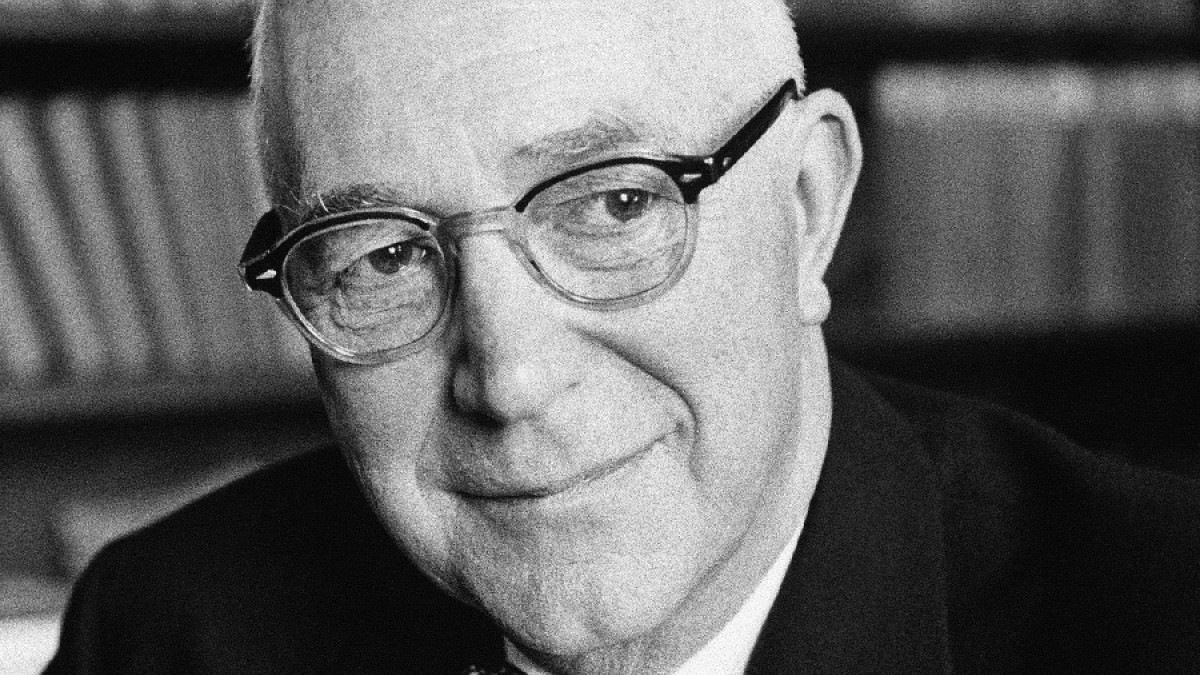Contributed to the understanding of the human personality: Who is Gordon Willard Allport?
Motivations in adults are born and develop from childhood impulses, but over time they break away from them and become independent. Although adult behavior can be extended to behavior in childhood, the link between childhood and adulthood has been broken.

(1897-1967) American psychologist. He developed a theory of personality based on the concept of "functional autonomy". He was born on November 11, 1897, in Montezuma, Indiana. He entered Harvard University in 1924 to teach the social sciences. He became a psychology professor at the same university in 1930. In the last years of his life, he taught social ethics. He died on October 9, 1967, in Cambridge, Massachusetts.
Gordon Willard Allport (November 11, 1897 – October 9, 1967) was an American psychologist. Allport was one of the first psychologists to focus on the study of the personality, and is often referred to as one of the founding figures of personality psychology.
Allport put forward his theses on personality theory in his 1937 book Personality: A Psychological Interpretation. The method adopted here is to emphasize the differences between people and to determine the rules and laws that the person obeys as a unique individual (idiographic approach) rather than examining the general psychology laws that people follow (nomothetic approach). The other representative of this approach in the USA is Kurt Lewin.
According to Allport, personality is a dynamic set of psycho-physical systems that determine the individual's unique harmony with his environment. In a narrow sense, personality can be defined as an individual's "specificity". Allport's theory of personality is based on the personal characteristics that make up the personality structure. Personal characteristics, which are a combination of motives and habits, are the defining elements of human behavior. Allport argues that genetic factors are insufficient to explain human behavior. Heredity, natural reflexes, and natural impulses should be seen as phenomena that explain the behavior patterns of children. Behaviors in adults are determined by factors such as environment, conditions, learning, and experience.
Accordingly, motivations in adults are born and develop from childhood impulses, but over time they break away and become independent. Behaviors are created by a set of factors that are effective at a given time. Although adult behavior can be extended to behavior in childhood, the link between childhood and adulthood has been broken. Allport, who argues that the link between the past and the present is not "functional" but "historical", agrees with Lewin on this issue.
As an extension of the concept of "functional autonomy", Allport focused his studies on the "personalization" of the individual. In his work titled Becoming, published in 1955, he focused on "authenticity" and "individuality" in the adult personality.
Based on Edward Spranger's personality types, Allport also developed a method for measuring personality values. With this method, which he called "Allport-Vernon-Lindzey Values Analysis", he wanted to show that the "idiographic approach" that emphasizes personality differences does not prevent the use of measurement techniques.
The concept of "functional autonomy", which Allport brought to psychology, was accepted by the Behavioral School, which explains the behavior of the individual with the environment. On the other hand, it has been especially criticized by Freudians for suggesting that there is a disconnect between childhood and adulthood.
Works of Gordon Willard Allport
A Study of Values (with P. Vernon), 1931,
Personality: A Psychological Interpretation, 1937,
The Nature of Prejudice, 1954,
Becoming, 1954,
Pattern and Growth in Personality; 1961.
